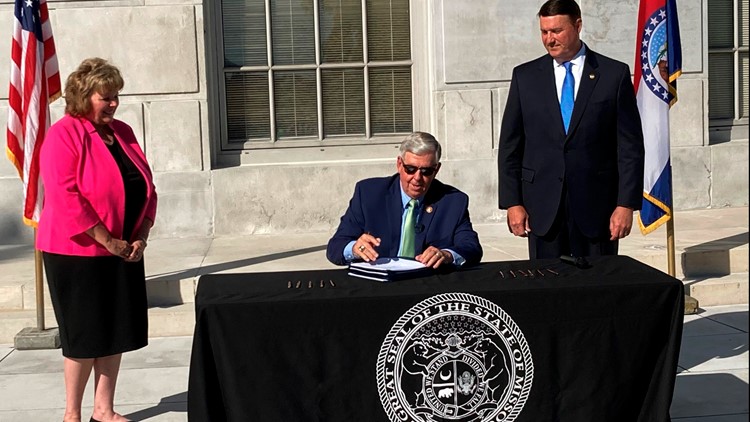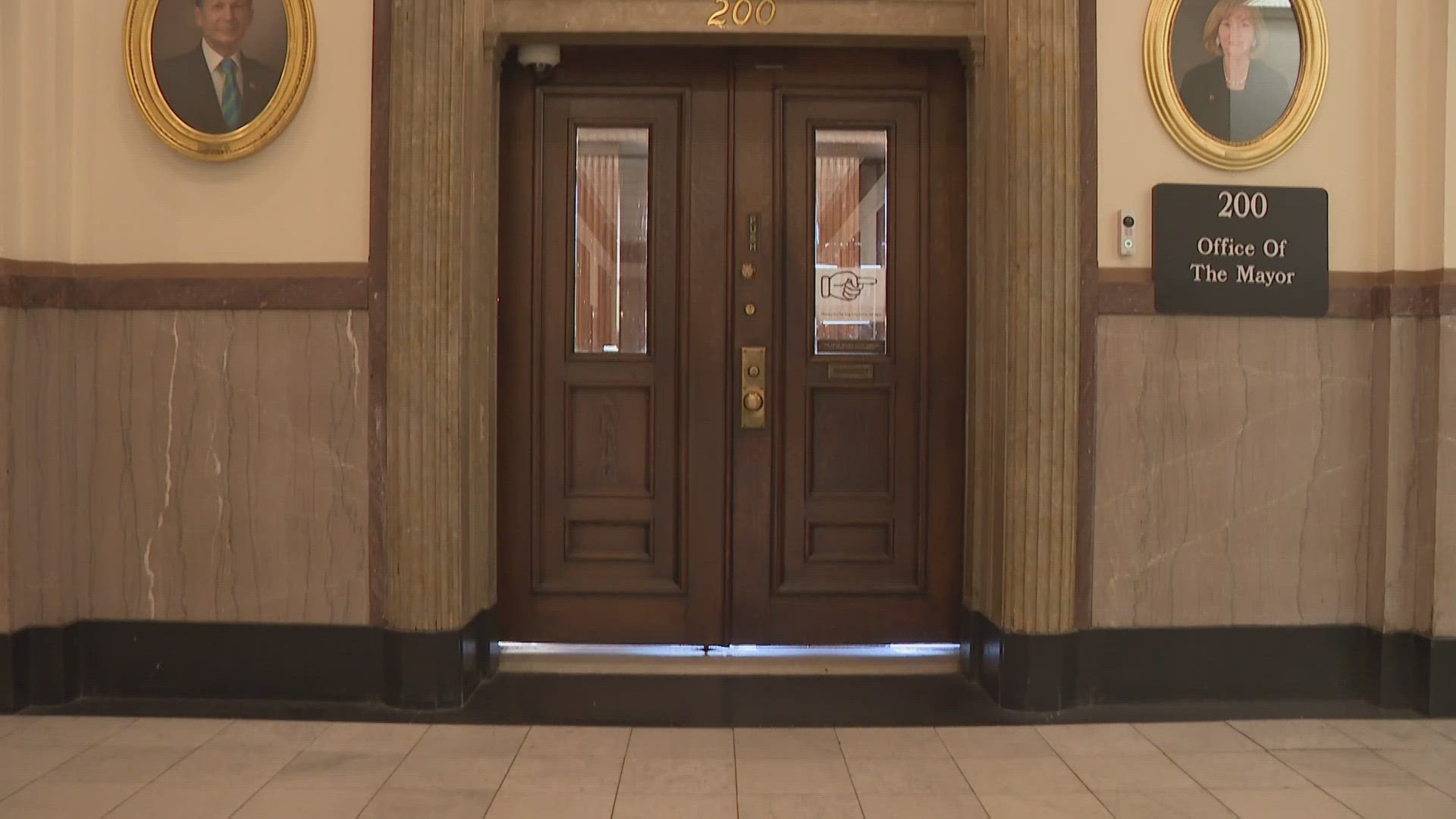JEFFERSON CITY, Mo. — Missouri is clashing with the U.S. Department of Justice over a new law banning police from enforcing federal gun rules.
In a letter obtained by The Associated Press, Justice Department officials wrote that state lawmakers went too far with the law and noted that federal law trumps state law under the U.S. Constitution’s Supremacy Clause.
In response, Gov. Mike Parson and Attorney General Eric Schmitt wrote a defiant letter stating that they still plan to enforce the new law.
Missouri’s new law would subject law enforcement agencies with officers who knowingly enforce federal gun laws to a fine of about $50,000 per violating officer.
The law also declares that any federal laws, executive orders or other federal regulations to track or take away firearms from law-abiding citizens will be considered void in Missouri.
WHY DID LAWMAKERS PASS THIS BILL?
Republican lawmakers who helped pass the bill said they were motivated by the potential for new gun restrictions under Democratic President Joe Biden. Biden so far has taken limited action on firearms aside from further regulating pistol-stabilizing braces and cracking down on “ghost guns,” homemade firearms that lack serial numbers used to trace them and are often purchased without a background check. Republican Sen. Eric Burlison, who was among the Missouri lawmakers leading the push for the bill, cited the regulations on stabilizing braces as one example of federal rules he hopes to preempt.
WHAT'S THE PRACTICAL IMPACT OF THE LAW?
Almost all federal gun laws are also enshrined in Missouri's state laws, meaning local police can continue to enforce those policies.
“There’s very little circumstances, if any, where there’s a difference between what’s on the books on the federal level and what’s illegal in Missouri,” Burlison said. “As we stand here today, it does not have an impact on law enforcement.”
One of the few differences between current state and federal gun laws deals with people convicted of misdemeanor domestic violence crimes, who under federal law cannot own guns. Missouri affiliates of the group Everytown for Gun Safety have raised concerns that because Missouri doesn't have a matching rule against misdemeanor-level domestic abusers owning firearms, the new law could prevent local law enforcement from keeping guns from violent partners.
Brian Boynton, an acting assistant attorney general at the Justice Department, also asked Missouri officials in his letter to clarify whether the law will prevent local police from asking federal agents to trace a firearm from a crime scene or testify in front of federal grand juries on gun crimes. Schmitt and Parson did not address Boynton's questions in their Thursday response. On a more abstract level, Boynton said the measure “threatens to immediately disrupt the working relationship between federal and state law enforcement officers."
HAS THE JUSTICE DEPARTMENT WARNED OTHER STATES?
Several states passed similar laws this year, including Arizona, Arkansas, Idaho, Montana, Oklahoma, Tennessee, Texas and West Virginia. Missouri’s law went further than most in its possible punishments for officers who do enforce federal gun laws, including a possible fine of about $50,000 per violating officer. So far, the Justice Department has only sent a letter to Missouri raising concerns about its law. But Everytown for Gun Safety has been pushing the federal government to send a warning to at least one other state, Arkansas.
___
Associated Press writers Michael Balsamo, in Washington, and Lindsay Whitehurst, in Salt Lake City, contributed to this report.



